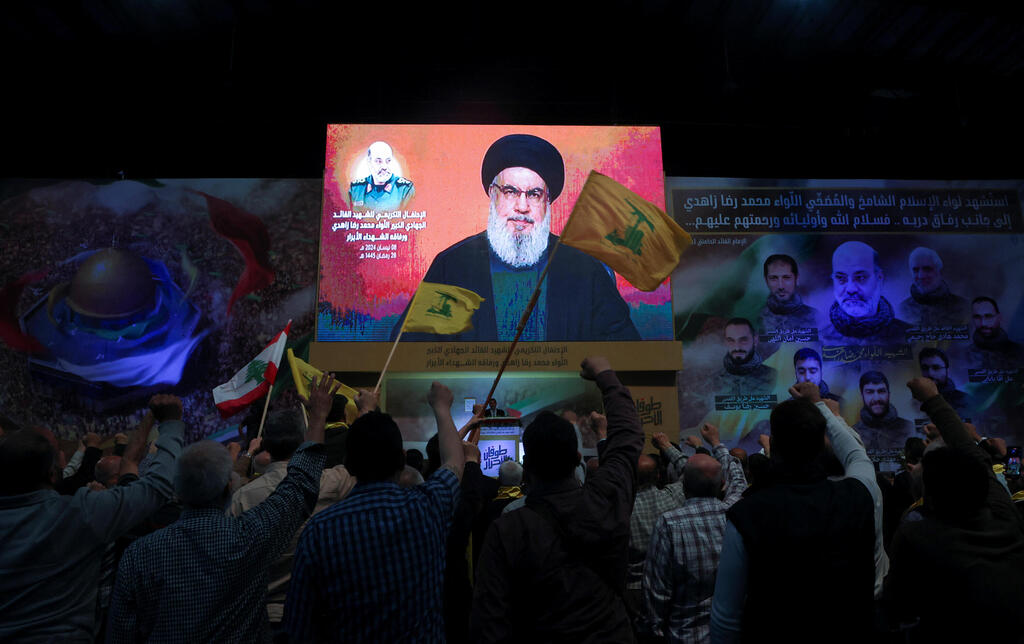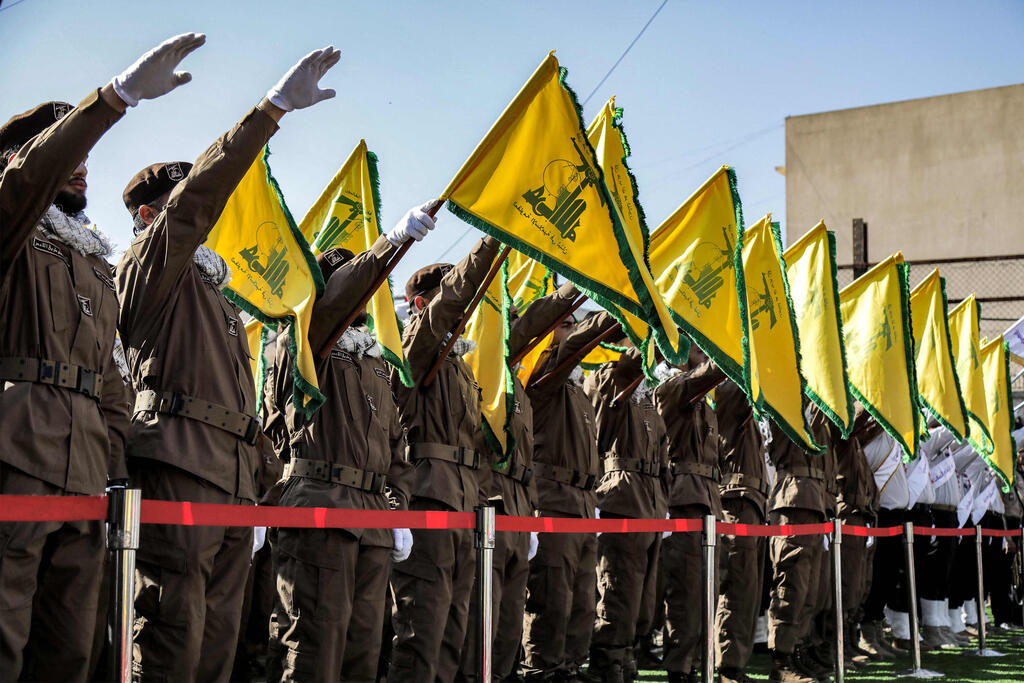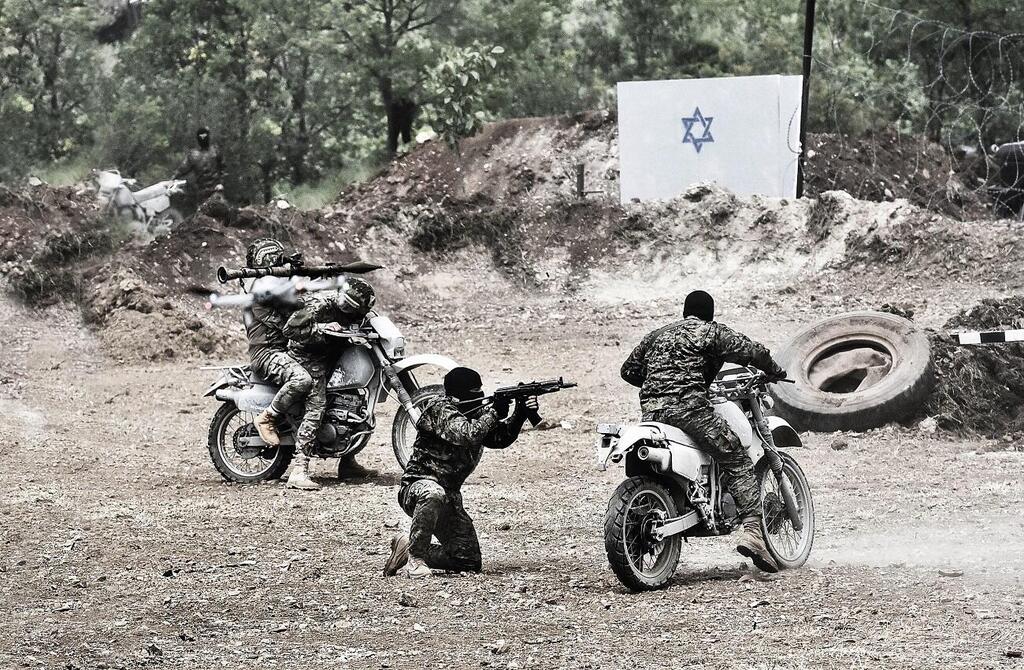Getting your Trinity Audio player ready...
Hezbollah is prepared for war against Israel at any moment and is not afraid of one, the head of an Israeli security think tank said on Thursday.
Tal Beeri, a Middle East expert and head of the Research Department at the Alma Research and Education Center, presented the bleak assessment to a forum of military attaches from around the world, embassy representatives and foreign journalists, alongside senior military personnel and reservists in northern Israel.
"So far, the IDF has not struck Hezbollah's significant systems," Beeri said during a conference on the security challenges on Israel’s northern front and in Iran.
"Even if the government pursues a diplomatic agreement, it will only postpone the war that will break out whenever Hezbollah chooses and on its terms—by my estimation, no later than the end of 2026."
In his presentation, Beeri highlighted the evolving security threats from Hezbollah, noting its continuous development of military capabilities, especially the Iran-backed terrorist group’s precision-guided missile project.
He explained that the organization not only possesses precision ballistic missiles like the Fateh-110, which have a range of 350 kilometers and a strike radius of up to 10 meters but also retrofits its older, 1980s-era Iran-produced “destroyer” missiles at Syria's CERS center. These upgrades improve the missiles' accuracy, enabling strikes on targets up to 125 kilometers away.
"Instead of hundreds of precision rockets and missiles and precise ammunition, Hezbollah now has thousands," Beeri warned, from an arsenal totaling about 250,000 different munitions. These missiles are often launched from underground and camouflaged launch pits.
He also did not rule out the possibility that Hezbollah might use chemical weapons against Israeli military forces in case of an invasion of Lebanon.
Beeri also issued a stark warning about Hezbollah's elite Radwan force which has been building up its presence along Israel’s northern border before the outbreak of the war in Gaza.
He took little solace in reports that the Shiite commando unit withdrew some of its forces from the border area with the outbreak of the war and the killing of nine of its senior commanders in attacks attributed to Israel.
"We assess that Radwan, if it chooses, could still feasibly execute a more limited invasion plan in the north, involving 100 to 200 operatives over a smaller area than what was previously prepared for before Hamas' attack," he said.
Alma Center researchers estimate that the IDF's targeted strikes did not compromise Radwan's readiness, as it operates under a continuous command structure and significant actions are required to impact its capabilities. "Radwan still poses a clear and immediate threat and challenge in terms of any invasion into Israeli territory," Beeri concluded.
'Any agreement only means buying time'
Beeri highlighted that Hezbollah is intensively studying and adapting tactics from the IDF's anti-tunnel operations in the Gaza Strip, using these strategies in Lebanon, known from the 2006 war for its extensive tunnel network.
Funded and guided by Iran and North Korea, these tunnels span southern Lebanon, facilitating the movement of forces and equipment, including tactical and offensive operations, explosive tunnels under Lebanese villages targeting troops and tunnels used for launching missiles into Israel.
The United States and France are applying considerable pressure on Israel to refrain from initiating a military campaign against Hezbollah and to negotiate an agreement that would push the terrorist group's fighters and resources away from the border.
4 View gallery


Hezbollah Secretary-General Hassan Nasrallah speaks before a crowd of supporters in Beirut
(Photo: REUTERS/Mohamed Azakir)
Despite these diplomatic efforts aimed at calming tensions, Alma Center researchers predict that Hezbollah will attempt to escalate the conflict to create a perception of victory.
"No political or diplomatic agreement will prevent Hezbollah from continuing to operate," Beeri alerted, "Any such agreement only means buying time, with Israel being the only side likely to adhere to it, while Hezbollah waits for an opportune moment to initiate a full-scale confrontation."






